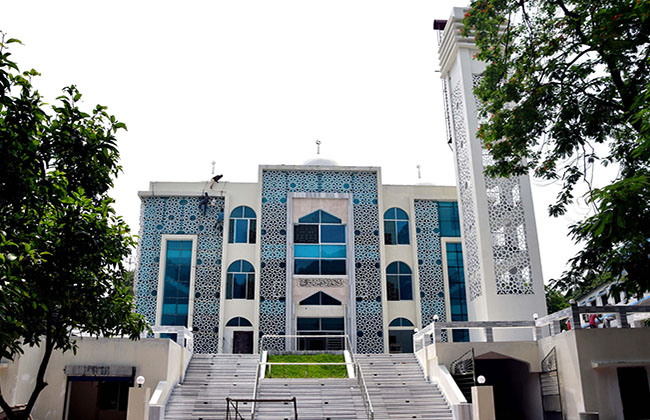
The decision by the Government to build fifty model mosques has been welcomed by most people. To them the building of mosques is a pious activity and any government involved with that deserves praise and support. The decision also comes at a time when the Hefazat seems rather weak with many inside and others under the watch. The model mosques are going to be much more representative of the official position of the state on Islamic theological issues. It’s obvious that the Government thinks that religious practices are too serious in today’s world to be left in the hands of the theocrats of the Islamic variety alone.
These theocrats have also shown a great deal of interest in politics as always. Historically, religion and politics has always been a potent mix and for the first hundred years of colonialism they were a significant resistor. The Faquir-Sannyasin movement was not only the first hit against colonialism but also an expression of power of the religious establishment over rural areas in general. Subsequently, the Faraizi movement was also the same and in fact more theocratic in nature and also more widespread. The reason why it was possible was because the religious lot was better connected with the people than any others. Hence the combination of the middle and the lesser class led to such explosive events.
In 1971, the role of Jamaat –e-Islami was also positioned on faith. Although it was essentially anti-Indian and anti-Hindu and so a natural ally of Pakistan, it also pitched the religious ball. However, it could not make much headway in the face of the state making movement. Their revival in later years after 1975 shows that they still have a network –social, political and economic — and could be budged only when the full force of the state was exerted.
Fast forward to the current period when the Hefazot has become the largest Islamist force and at one point did have the rhetoric to replace the current non-theocratic regime. After the Modi protests were over, the crackdown began and continues, whittling its clout and power. The declaration of the fifty model mosques, though decided long before, shows the Government wants to appear both pro-religious and anti- Islamists. The model mosques which are also centres of activity that can challenge or offset the influence of the informal Islamists.
What about temples and churches?
While mosques are naturally going to get priorities as it’s the majority population’s place of worship and has wider implications, other faiths can’t be ignored. The state must pay attention to the other communities particularly the Hindus who constitute a significant minority. As it is they lead a difficult life and become victims of the minority politics syndrome. They are often victims of accusations of not being Bangladeshis enough. Of course, they don’t have divided loyalties but some at least feel less secure and have migrated to India. Problem is, life in India is hardly better off for them. Given a choice, they would much rather be here.
The Government has been much more even handed than others before in induction of minorities in the civil service and police but its promoting social cultural institutions that are needed also. Hence, the opportunity to set up model temples for Hindus and Buddhists as well should not be ignored. The Christians are much better off and really don’t need state patronage but it would be a nice act.
But herein is the problem. The Government would not like to be seen as a promoter of other faith given the current mood and that more than any other factor will weigh in. So how can the state be seen as more even handed towards all faiths?
Perhaps the best way out is to establish a Foundation for all other faiths in the line of the Islamic Foundation which will look after faith and cultural issues of faith minorities. It can then promote other faith activities and also organizes joint events with the Islamic Foundation. In that case, the Government can promote and protect others without having to bother with the “stigma” of non-Muslim faiths.
While that political reality is understood, the reality of promoting all is also true. That is why all should be supported in the best way possible. Denial of obligation to all is no response. One can do all it wants just using a touch of tact and tactics.Afsan Chowdhury is a journalist, columnist and Bangladeshi liberation war researcher. He received Bangla Academy Award in 2018 for his contribution to the liberation war literature.
